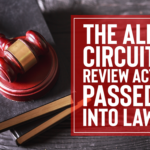Medicare fraud costs US taxpayers approximately $60 billion a year in the form of abuse, fraud, and waste. That’s money that goes to unethical and dishonest medical care providers and comes straight out of the pockets of taxpayers’ hard-earned paychecks. Furthemore, the patients who depend on the medical services are swindled out of getting the services they need as resources are diverted by greedy, unscrupulous parties looking to cash in at the expense of others.
If you are a doctor, nurse, pharmacist, or employee of a medical provider or insurance company, you may well have seen Medicare fraud practices up close, carried out by co-workers, administrators, superiors and so on. For those who have the courage and loyalty to their fellow citizens, there are ways to report Medicare fraud to prevent injustice from occurring, and you may even report Medicare fraud anonymously. In addition, monetary rewards may be available to you in return for reporting Medicare fraud.
What is Medicare Fraud?
Medicare fraud includes all types of acts by which providers, insurers, and others attempt to illegally claim money from the Medicare program, generally through submitting claims to Medicare for reimbursement. Medicare fraud can specifically include:
- Billing for medical services or items not provided
- Billing for unnecessary medical services or items
- Billing for brand name drugs when generics are administered
- Identity theft to wrongfully obtain medical goods and services
- Upcoding or unbundling services in order to collect more money
- Kickbacks for patient or business referrals
- Using false information to mislead patients into enrolling in Medicare plans
Reporting Medicare Fraud Through the Office of The Inspector General
You may report fraud directly to the Office of the Inspector General through several avenues:
- Calling the Office of the Inspector General at 1‑800‑HHS‑TIPS
- Contacting the Office of the Inspector General online
Your call or inquiry to the Office of the Inspector General will remain confidential. You may also choose to report to the office anonymously. By reporting Medicare fraud to the Office of the Inspector General, you may be eligible for up to a $1,000 reward.
Pursue Whistleblower Rewards Through a FCA Claim
A second, more lucrative option for obtaining rewards through reporting Medicare fraud is to bring a False Claims Act (FCA) claim directly against the offending individuals and/or organizations who perpetrated the fraud. In an FCA claim, a whistleblower files a suit through his or her attorney against the offending parties, and the federal government then has the option of joining in your claim. If you are able to provide information to the government which brings about a successful FCA claim, then you as the whistleblower are eligible for a reward of up to 30% of the government’s total recovery. Given the massive amounts of Medicare fraud that occur, this number could be quite substantial, even in the millions.
When you first file an FCA claim, it is often possible for you as the whistleblower to remain anonymous while the government determines whether to proceed with the matter. At a later point, however, your anonymity may be lost, but if you are eligible for large rewards and can help the government stop wrongdoers from perpetuating fraud on you and your fellow taxpayers, you may decide revealing your identity is worth it.
Consult With a Seasoned Medicare Fraud Attorney
At Kreindler & Associates, we understand that the decision to become a whistleblower is not an easy one. The government relies on courageous insiders like you to come forward with information that can stop harmful Medicare fraud. Our experienced healthcare fraud attorneys will work with you every step of the way to determine your appropriate course of action, protect you from retaliation, and collect your much-deserved reward. If you suspect that someone is committing Medicare fraud, contact us today for an evaluation of your allegations.




